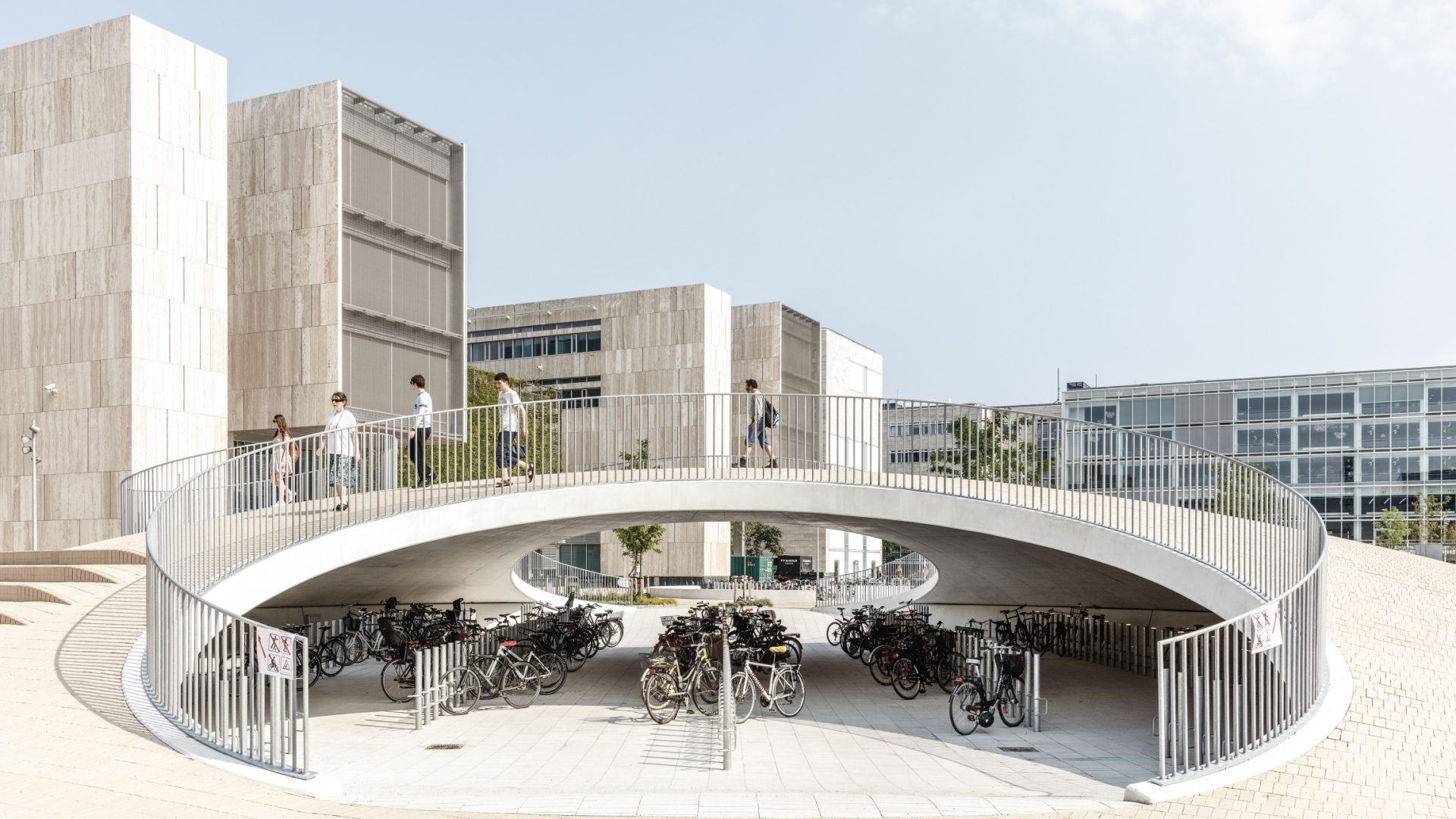James Ball’s “Let’s bulldoze Westminster” (TNE #359) really resonated with me but doesn’t go far enough. The UK is in desperate need of a reformation across the whole spectrum of politics. Among many other things, this should see the abolition of the monarchy, the disestablishment of the Church of England, the introduction of a fairer electoral system, the creation of a written constitution and the instigation of parliamentary practices befitting the 21st century.
Yes, I would take a bulldozer – not to the Houses of Parliament but instead to Buckingham Palace, one of the ugliest buildings in London. A new parliamentary building could be erected in its place with an annexed “halls of residence” for the MPs.
The Houses of Parliament should become a museum so future generations can be reminded of the absurdities of the system of government and why radical change was needed.
J Wells
Deepest France
King Charles has said he doesn’t want to live in Buckingham Palace. OK, repurpose that for a new parliament, and turn Westminster into a museum and university of politics.
Jon Ryan
James Ball misses an essential point in his otherwise excellent article. The existing debating chamber was actually designed to encourage confrontation, and in this it succeeds brilliantly. What is needed to heal the divisions in our country is not this theatre of confrontation but a place where common ground can be sought and collaboration welcomed.
Rebuilding the sham Gothic of Westminster with a building that meets the needs of the 21st century would help us to focus on a future that recognises collaboration is needed to deal with the global nature of both problems and opportunities.
David Weaver
Cranleigh, Surrey
Labour pains
Calum Paton’s letter, “Slow Progress” (Letters, TNE #359), exemplifies the mess Labour has got itself into over Brexit. According to Professor Paton, we must wait for at least 10-15 years of emerging consensus before rejoining the EU becomes a live issue. He blames Brexit “at least in part for disquiet at an arrogant EU that over-reached in too many areas,” but provides no evidence to support this assertion. At the same time, he fails to pay any attention at all to Labour’s role in helping create the hard Brexit consensus that we have today.
First, Labour was the original Eurosceptic party, opposing entry in 1970; holding a referendum on EU membership in 1976 and making manifesto commitments to withdraw in the 1980s. The grotesque fusion of this anti-EU sentiment on the Labour left with the newly emboldened Eurosceptics on the Tory right helped create fertile soil that populists such as Farage and Johnson so mendaciously exploited.
Second, Labour’s embrace of Thatcherism under Blair and Brown meant that short-term City interests were prioritised over an effective long-term strategy designed to mitigate the awful effects of deindustrialisation. One inevitable consequence was a growth in the north-south divide. This was central to the success of the Vote Leave campaign in 2016, and Johnson’s 80-seat majority in 2019.
Third, immigration has proved a consistent problem for Labour and a highly significant issue in anti-EU arguments. The Conservatives encouraged EU expansion eastward to embrace former communist states, while New Labour saw immigration from the accession countries as a means of solving labour shortages at least until it became a political problem. Then we had Gordon Brown’s toxic “British jobs for British workers” and Ed Miliband’s farcical immigration mug. And all the while the anti-Europe drumbeat grew louder.
Fourth, after a brief flirtation with Euro enthusiasm and a call for a second referendum, Labour under Keir Starmer has committed itself to a notably hard Brexit: no customs union, no single market and no freedom of movement.
All this comes at a very considerable cost. If Labour wins the election in 2024 its Brexit policy will accelerate the UK’s decline even further: trade volumes will be down; the economy will be 4-5% smaller; inflation will be higher; many billions of pounds of output will be lost; tax receipts will be significantly lower; inward investment will be smaller; productivity will remain stagnant; cultural and educational opportunities lost; and Britain’s international standing be further undermined. Apparently, this is what Labour is asking us to vote for; the price of political realism.
Professor Paton’s defensive and pessimistic thinking is closely aligned to that of the Labour leadership, and as such it begs the question why and how will a new consensus emerge when no one is willing and able to make the case?
John Bailey
Jonty Bloom (TNE #359) notes that Keir Starmer “likes to portray himself as a sensible captain”. However, the reality is the “butch rhetoric” and “embattled machismo” discussed by Matthew d’Ancona in TNE #356.
This in itself reveals a lack of self-awareness, as well as a lack of political understanding of the obstacle that hetero-normative masculinity presents for any progressive politics rooted in a concern for social justice and a fair and democratic society.
The years of sexual and anti-racist politics that have helped deliver greater awareness and a measure of practical improvement in lives and social practices seem to have passed Starmer and too many of his MPs by, suggesting they are confined to and by an anti-intellectual bunker.
Paul Mason notes that “the last six months of Labour policy have been marked by pragmatic abandonment of policy pledges” (TNE #359). He concludes by arguing that Starmer’s success will be “measured by the enthusiasm he can generate, and the activism he can mobilise”. Well good luck with that: you can’t achieve either of those from inside a bunker designed to keep out the ideas, enthusiasm and creative agency of others.
Val Walsh
Crosby, Merseyside
I am puzzled as to why, in his piece on Keir Starmer, Paul Mason (TNE #359) lumped Sky News in with GB News as a partisan supporter of Rishi Sunak. The political editor, Beth Rigby, is as independent as they come and has a fully-functioning bullshit detector.
Sophy Ridge, having presumably become bored with wasting her Sunday mornings listening to frontbenchers, Conservative and Labour, avoiding answering any question put to them is superb on her new Monday to Thursday Politics Hub.
Mike Grainger
St Albans, Hertfordshire
Re: “Starmer’s trade trap” by Jonty Bloom (TNE #359). Have I got this right? Tories got us into this mess by making all sorts of unrealistic promises. Starmer is going to get us out of this mess by – guess what?– making unrealistic promises.
Don Adamson
Bradford, West Yorkshire
Horror Tories
Re: “As they push further right, the Conservatives are finished” (Letters, TNE #359). Programmatic failure isn’t the only take-away from this year’s awful Tory Conference. It’s the confirmation of the way the Conservatives now do politics.
Scant regard for truth or accuracy, constant blame-shifting despite 13 years in power and the invoking of scapegoats and fictitious bogeymen to wage culture wars – often against the more vulnerable.
The party no longer even pretends to embody the virtues it once attributed to itself such as fiscal probity, accountability to taxpayers or a business-friendly environment. It now looks increasingly like a populist bear pit of extremists, cranks and mediocrities which has proved incapable of exercising its duty of care to the nation or of taking the slightest responsibility for the damage it has done. For our – and its – sake, it needs to go.
Dominic Brett
Harrow on the Hill, Middlesex
Rishi Sunak is planning a new exam which will only be used in England – the Advanced “British” Standard. Can I suggest renaming it Advancing Raising Standards in England?
David Pollard
Heckmondwike, West Yorkshire
Last week’s hubbub concerning the cancellation of the northern section of HS2 revived a memory – or perhaps it was a dream…
On my retirement from teaching in 1993 I served for some 10 years in a voluntary group of European teachers attached to the Council of Europe in Strasbourg. Sometime in the late 1990s, a Belgian colleague came with his family to visit me in Birmingham and was delighted to be able to book return rail tickets on the Eurostar from Brussels to Birmingham. At the end of their short stay, we took them to New Street station and were informed that the Eurostar did indeed pass through Birmingham New Street but did not stop.
We marched into some managerial office and created a huge fuss, producing the tickets and receipts plus the accompanying wife and young children plus rhetoric about the disgrace to the UK – result! He telephoned ahead and the Eurostar halted to embark four Belgians.
I was later told that the original intention had been for the Eurostar to link several northern cities to London, maybe even to Scotland. But of course, this never happened. Why?
Can any readers cast light on this, or did l dream the whole story?
Jenny Banaks Bryer
Birmingham, West Midlands
Popular vote
I much enjoyed Alastair Campbell’s Diary (TNE #359) on how settled people are with their voting choice. Under our first-past-the-post system, you are actually voting for the individual and not the party, although most voters ignore this fact – hence the standard of some of our elected officials.
As a former Lib Dem mayor of Tring, I often voted for individuals from other parties as I knew that they were the best prospective councillors for our town. I also voted in three consecutive general elections for our Conservative MP David Gauke, who, even though he was a government minister, was such a superb, hard-working local MP (it also helped that we have a similar view on Boris Johnson).
I was eventually asked to leave the party, as was David from the Conservative Party, and although he was not elected we did have some great fun working together when David stood as an independent in 2019.
Mike James
Former mayor of Tring
In response to Alastair Campbell’s request for podcast topics (Diary, TNE #359), short-termism is all the rage, fuelled by self-serving politicians. Could he examine how to make, and ensure keeping, long-term sensible plans?
David Nelson
Wilmslow, Cheshire
The bald truth
Nigel Warburton (Everyday Philosophy, TNE #359) asks about the boundaries between material things and previously asked what “bald” meant precisely.
However, our best understanding of the boundary between, say, the side of a hole and the air inside it, or a tabletop and the air above it, excludes the possibility of precision. The boundary seems to be a boiling fabric of overlapping fields and forces in which phenomena that seem to be waves then appear to be particles when they collide with phenomena which look like particles but move like waves. Everything is in constant, violent flux.
Words are similarly fuzzy. “Balding” means anything between a few areas of bare skin and mostly bare skin on the scalp. “Bald” indicates very little hair or none on the scalp but says nothing about the side or back of the head.
We have adjectives, numbers, adverbs, context and subordinate clauses to add precision. For example, “completely bald”, “not a hair on his head” and, scientifically, “exactly 34 hairs distributed over the scalp as shown in the attached diagram”.
Peter Basford
Hertfordshire



